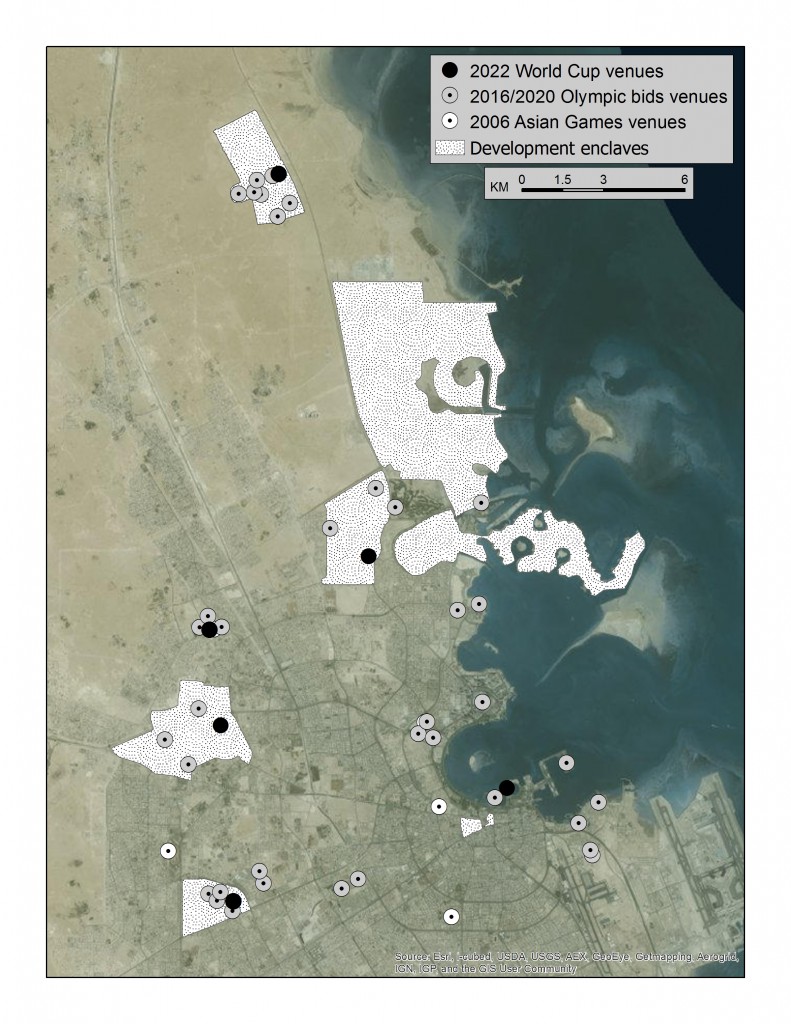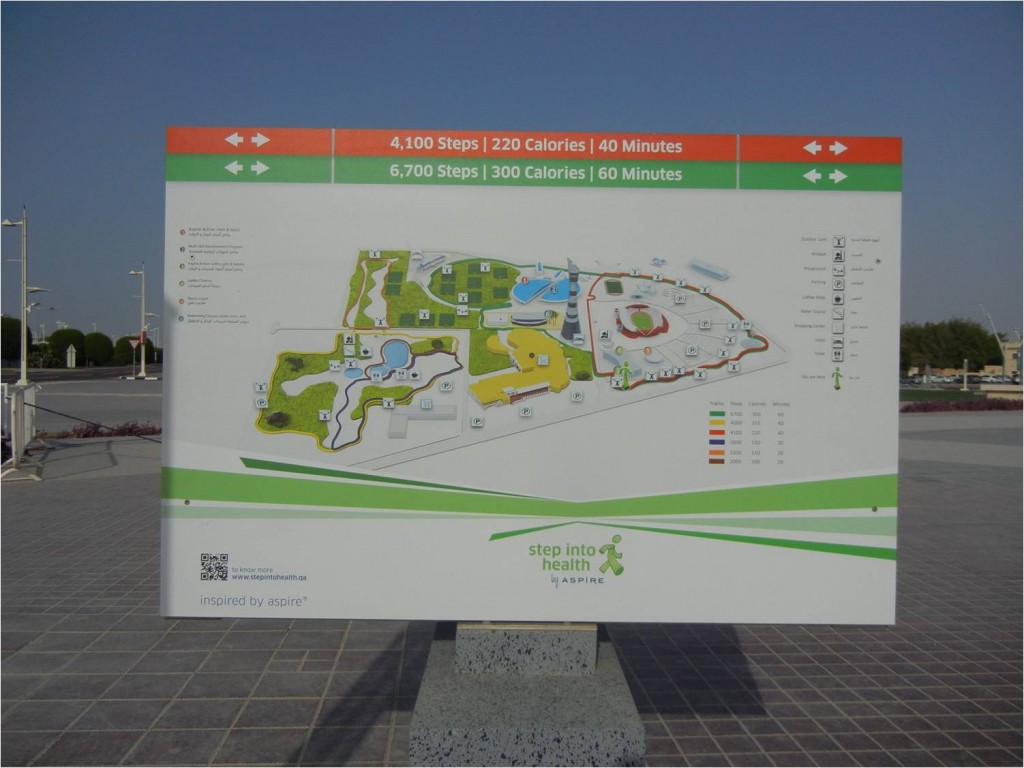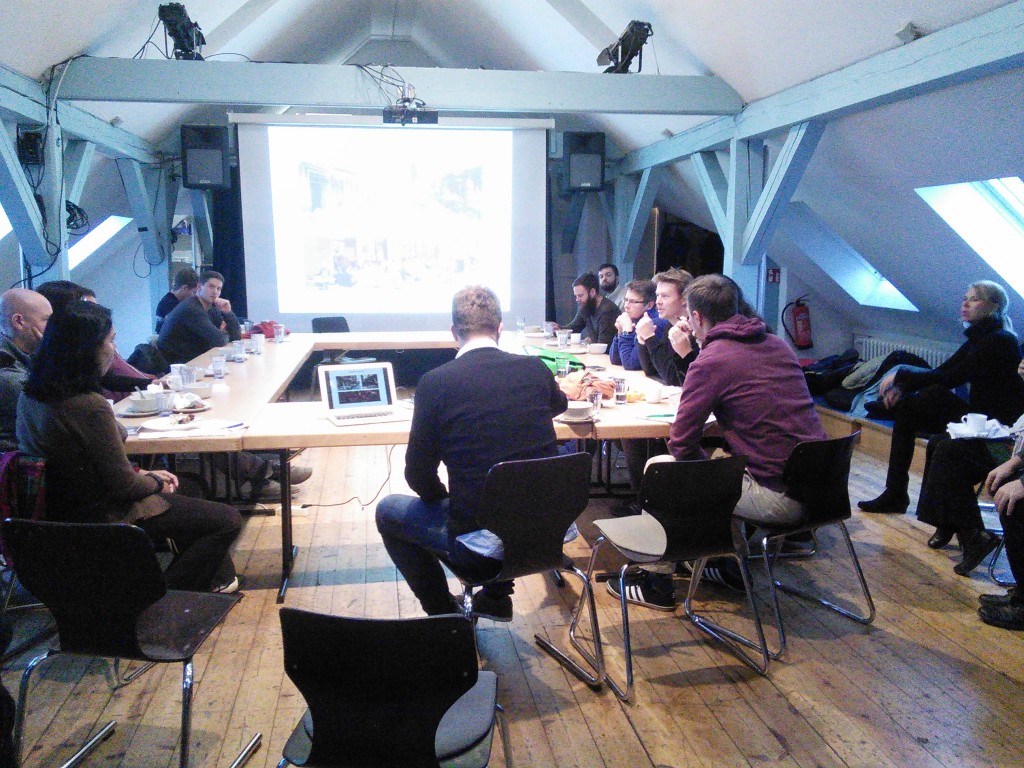A new paper is out in Urban Geography, on ‘The city’ as developmental justification: claimsmaking on the urban through strategic planning. In it I ask why Olympic bidders seek to make claims on ‘their’ cities. It is very common for Olympic bids to brand themselves as representing the potential host city, even though Olympics are usually managed by non-governmental entities and involve both urban and suburban stakeholders Many bid organizations simply refer to themselves by City Name, Year (e.g. “Doha 2020” or “NYC 2012, Inc”) and often make sweeping claims about the supposed motivations of that city. The paper draws on a comparative analysis of 43 Summer Olympic bids, and case studies of bidding politics in New York and Doha, Qatar. I argue that this type of claims making defines ‘the city’ with reference to particular places within it—pilot projects, particularly successful or troubled neighborhoods, zones subject to special legal or fiscal interventions—effectively allocating the right to define the city to the stakeholders who control those places.
Abstract: Municipal governments produce a seemingly endless supply of urban strategic plans, which purport to define the city by making claims on its future development trajectories. Critics note that this claimsmaking on “the city” renders it conceptually vacuous and overextended. Yet it is essential to question the degree to which speculative policymaking is merely rhetorical. Discursive claimsmaking on the city through strategic planning documents is an important technique in urban politics—a form of targeted simplification that benefits particular stakeholders by defining the city around sites in which they are invested. Bids to host sporting “mega-events” like the Olympic Games are a case in point: event planning corporations routinely make claims on the city, which strategically simplify its forms and processes, often by defining the city in ways that mediate between particular land investment projects and broad visions for citywide development. The implication is that claimsmaking on the city through urban strategic planning is intentionally simplistic and acts as an ideological practice for justifying urban development projects.
The paper is behind a paywall, please feel free to email me for an authors’ copy.



